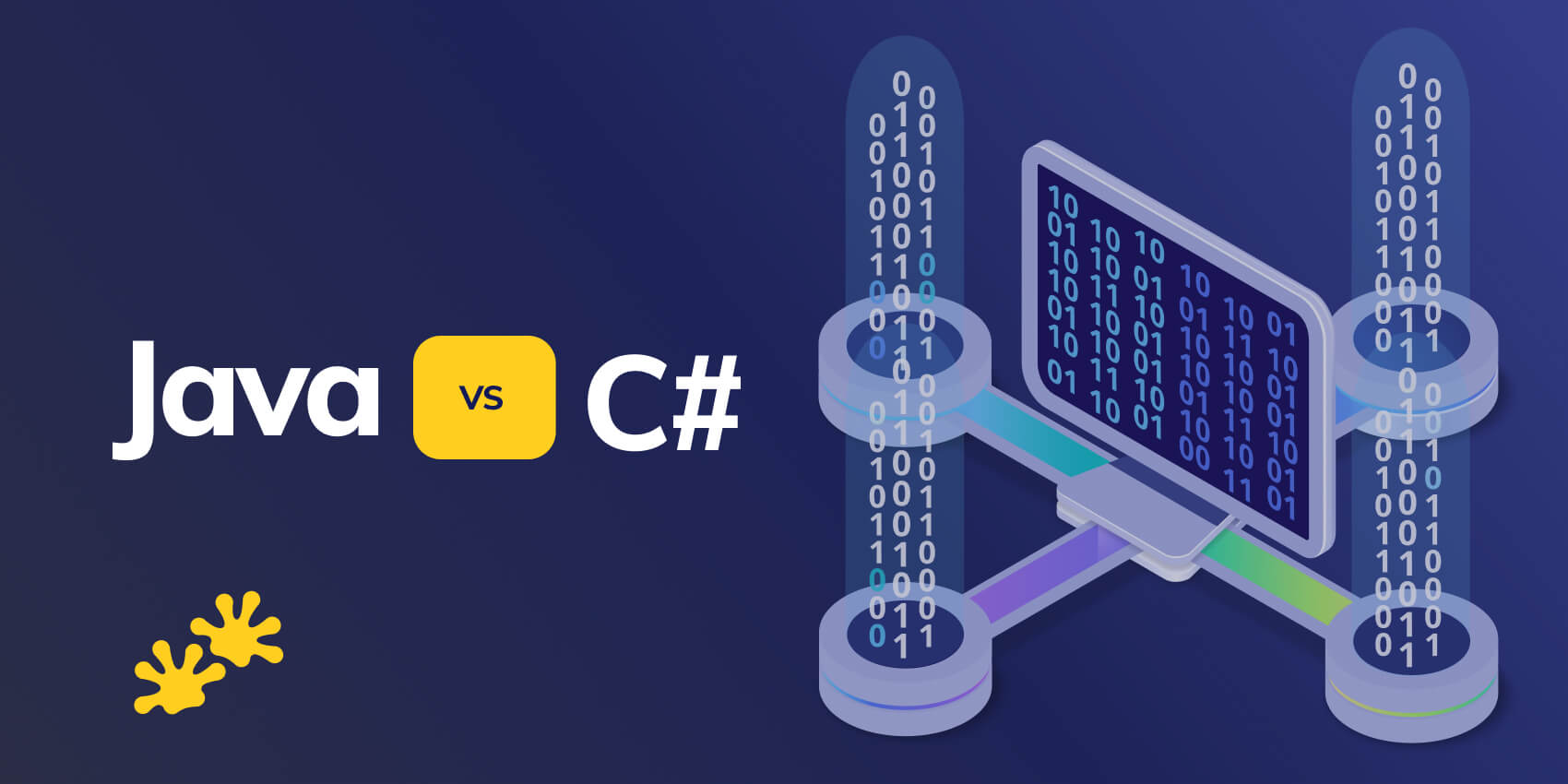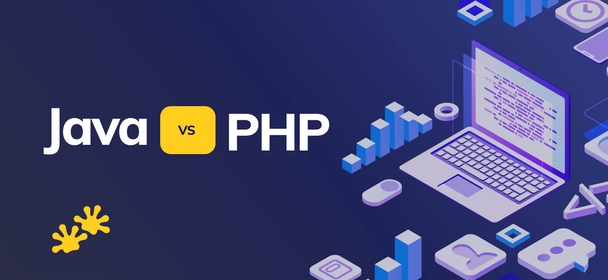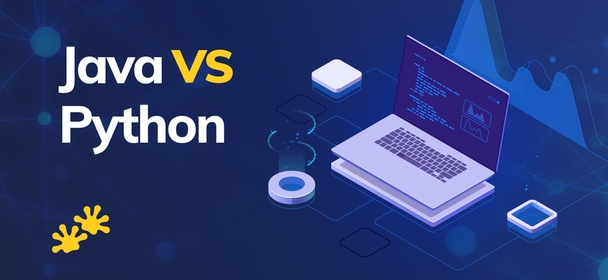Java vs C#

In the online battles of Java programming language vs C#, millions of man-hours were wasted and billions of nerve cells on each side were destroyed. While this post could be the most provocative on our blog and the most meaningless at the same time, let’s analyze each of these languages and find the areas where each of them will be in the right place.
If we discard the “holy war” and take a sober look at both languages, we will see they are like brothers. Of course, not twins, but they still have the same roots, because in one way or another both of them originated from C and C++. If you take a look at them with the eyes of a developer, you will see that C# and Java have a very similar structure. Each of them is a strictly-typed language, each of them is the language of OOP and many of their functions derive from C++ syntax.
The Evolution of Java language and C#

Java language appeared long before C# and managed to become a global leader in several areas. Particularly, Java has been the most chosen language for enterprise-products for many years. When C# appeared in the first half of the 2000s, at first it did not look like a worthy competitor but quickly gained its place under the sun, which is not very surprising since for its creation Microsoft utilized many years of their experience with Java. In its first decade, C# was far ahead of Java with its regular and frequent releases of updates and new features. Additionally, thanks to the support of Microsoft, the inclusion of an excellent development environment and many libraries, it becomes clear why C# has become one of the industry standards in less than a decade. However, as the time kept flying, its advantages quickly turned into disadvantages – too frequent updates and additions of new features had compromised the sequence of development and the simplicity of the language. On the other hand, C#-fans are the first ones who receive new features. C# gradually gained its market share, and even in the area whereas it seemed Java could not have competitors. Of course, we are talking about backend-development, but it is also worth to mention that C# had also become one of the standards for developing desktop applications for Windows. During Microsoft’s development of its own Windows mobile platform, C# had a chance to compete with Java in the market for developing applications for mobile operating systems, but – fortunately, or not – Windows Mobile project was closed.
At the same time, Oracle chose a different path of development – updates of Java were rare. This caused a lot of reproaches thrown at them but allowed them to save backward compatibility from version to version, which is a huge plus especially for enterprise products, where the systems are often being built and developed for decades. Also, a consistent approach to development allowed Java’s ecosystem to maintain a simple and understandable syntax. This allowed not to complicate the work with both new and old code. Additionally, and to the delight of Java fans, Oracle has accelerated the development and releases of new versions. Nowadays, Java keeps up with modern trends, herewith maintaining succession and backward compatibility.
What is often called one of the main differences between Java and C#, is that Java is cross-platform. Of course, there is also a Mono project that allows you to write cross-platform applications in C#, but for such types of work, Java is still beyond the reach of its competitors.
Java and C#: Comparing Syntax, Technical Aspects and Software Quality

C# with its simple syntax is at first way simpler, and it seems that it allows you to do many things easier and faster than Java, but surprisingly, writing high-quality code in C# requires a higher qualification of the programmer due to need of a clear understanding of how all the features work. At the same time, Java minimizes the number of errors and allows you to work with already written code as efficiently and fast as possible, thanks to more complex and orderly syntax. Comparing the syntax of Java and C#, one might say: “It seems as if Java was built to keep a developer from shooting himself in the foot, while in case of C# it seems as if it was built to give the developer a gun but leave the safety switch turned on”. I find it unexpectedly accurate, but I’d add only one thing – the fuse is useless if you don’t know how to use it.
If we make a deep comparison of Java and C#, diving into the depth of all their technical aspects, we see that they have one thing in common – they are great for developing backend-applications, including complex enterprise systems. At the same time, several differences can have a major impact on stack selection. First, it’s an infrastructure that is already working – if a company built its infrastructure based on Windows servers, C# will be an excellent choice, because it was created by Microsoft and is well optimized for Windows. At the same time, Java would be ideal for an open-source ecosystem based on Unix, Linux, or other platforms outside of Microsoft.
In conclusion, I want to add one simple but often forgotten truth – “The success of every particular project doesn’t depend just on the programming language. Software quality is most affected by the quality of developers themselves, not the programming language”.
If you want to talk with us about your project - Contact Us.

